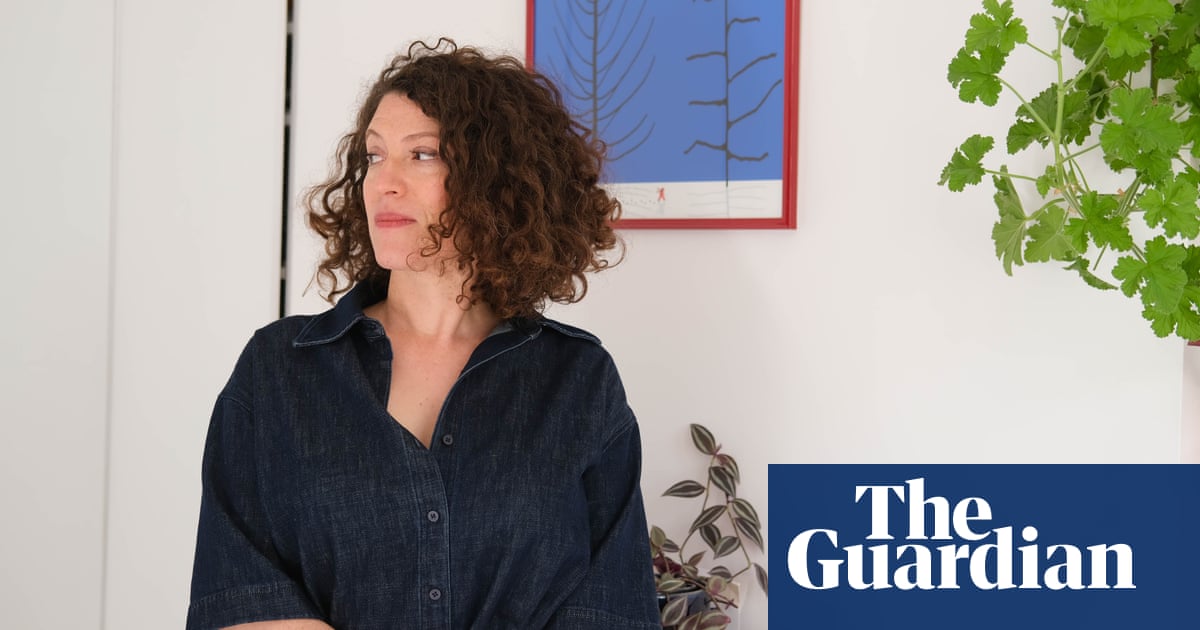In her last novel, The Exhibitionist, Charlotte Mendelson explored with glorious relish the torments of being married to a monster. Ray Hanrahan, a one-time YBA and full-time egomaniac, is abusive, manipulative and misogynist, an alloy of self-aggrandisement and self-pity. As his family gathers for his first exhibition in more than a decade, his more talented wife, Lucia, must decide whether to sabotage her own success as a sculptor to save her marriage. It is a brilliant and blackly comic study of narcissistic dysfunction, powered by the double desire to see Lucia break free as a woman and an artist, and the unspeakable Ray get his just deserts. Gimlet-eyed, sharp-tongued, blisteringly precise, it crackles with female fire and fury.
That fury cranks up to 11 in Wife, the evisceration of another toxic marriage, this time between two women. Zoe and Penny have been together 18 years and have two teenage daughters, Rose, biologically Penny’s, and Matty, biologically Zoe’s, but, after years of emotional abuse, Zoe has reached breaking point. Over the course of a single harrowing day she and Matty must move out of the family home with or without Rose, a conflict that is tearing her in two. She must also survive a mediation meeting with Penny, the girls’ biological father, Robin, and Robin’s sister (and Penny’s ex) Justine, all of whom blame Zoe for absolutely everything that has gone wrong.
Spliced into this dies horribilis is the story of their life together. Zoe, from whose perspective the novel is told, is one of those women for whom Mendelson has long been a patron saint: brainy, overanxious and desperate to please, a socially awkward PhD student making do with microwave meals for one until she meets Penny, a professor 10 years her senior. Penny is everything Zoe is not – an overweeningly confident glamour puss in heels and lipstick, who kisses Zoe flamboyantly in public and declares her a prude for her self-consciousness. The situation is complicated, Penny lives with another woman, but Zoe is powerless to help herself. She falls head over heels, upended by all-consuming desire.
Marriages “are fascinating to the nosy”, Mendelson wrote in 2022. “There is little more gripping than a really molecular insight into how a relationship works, or fails: the public flirtations, the discreet acts of cruelty.” In Zoe and Penny’s marriage, though, there is little evidence of discretion. Penny is another Ray Hanrahan, unthinkingly cruel and prodigiously needy. Like Ray, she demands infinite adoration, while blithely belittling Zoe at every turn. But while Ray was comically monstrous, Penny is simply a monster. She has neither Ray’s early talent nor his demonic swagger. She gets none of his humdingingly memorable lines. What Zoe can possibly see in her remains mysterious. Aside from her undeniably excellent hair, she is devoid of a single quality that might be mistaken for a redeeming feature.
In another novel this might have set the stage for pitch-black humour. Certainly, Mendelson marshals a cast of quite epic ghastliness: while Penny is their queen, Penny’s friends are also unremittingly awful. Robin is so fixated on “his” nights as a father that he instructs lawyers to enforce them when the girls are ill. The mediators they go to for counselling are incompetent or spineless or both, accepting as gospel even the most indefensible of Penny’s lies. But while the Exhibitionist took a similar list of ingredients and baked them into a gleeful satire on family and the beatification of (male) artistic genius, Wife is an open wound of a book.
There are occasional joyful flashes of Mendelson’s sharp wit – Matty’s denim jacket has SCREW THE PATRIARCHS painted on the back “as if she is an escapee from an Orthodox seminary” – but mostly it roils with raw, messy pain. The hapless but ever-honourable Zoe must endure an endless barrage of toxic accusations. Gaslighting, bullying, coercive control – she is subjected to them all. Desperate to save her marriage and protect their daughters, she fights the same battles again and again; again and again her efforts are mocked and rejected. If madness is doing the same thing over and over and expecting different results, by any metric Zoe is mad as a hatter. The cycles of viciousness repeat themselves. Nothing changes. Zoe suffers terribly. Rose and Matty suffer terribly. Penny locks herself in the bathroom and screams.
“There are unreliable narrators in life, not only in fiction,” Zoe observes early in the novel, bewildered by the number of their acquaintances who accept Penny’s poisonous version of events. As Wife unfolds, it seems certain that Zoe must turn out to be one too, that something seismic will happen to split open the story and reveal a different, more complicated truth at its centre. That something never comes. Instead the book unfolds like a slow motion car crash, sometimes compulsive, more often frustratingly grim, a bitter reminder of the monomania of misery and the smoking wreckage of failed love.
after newsletter promotion
